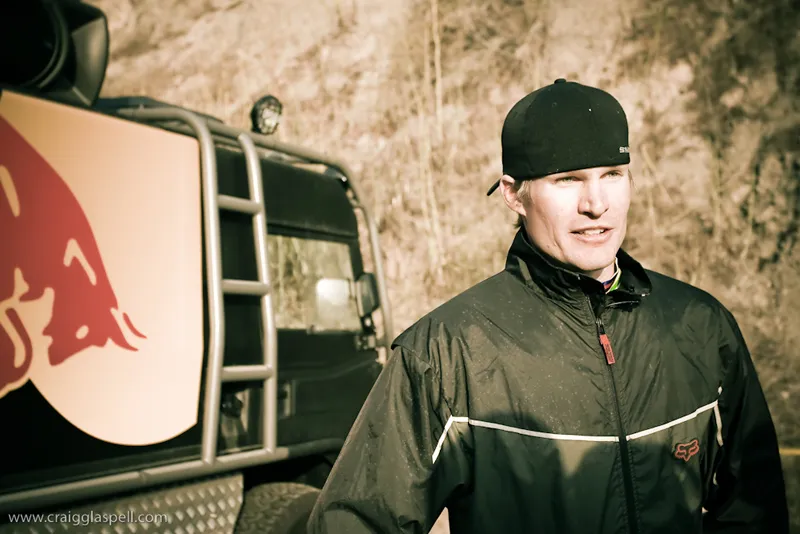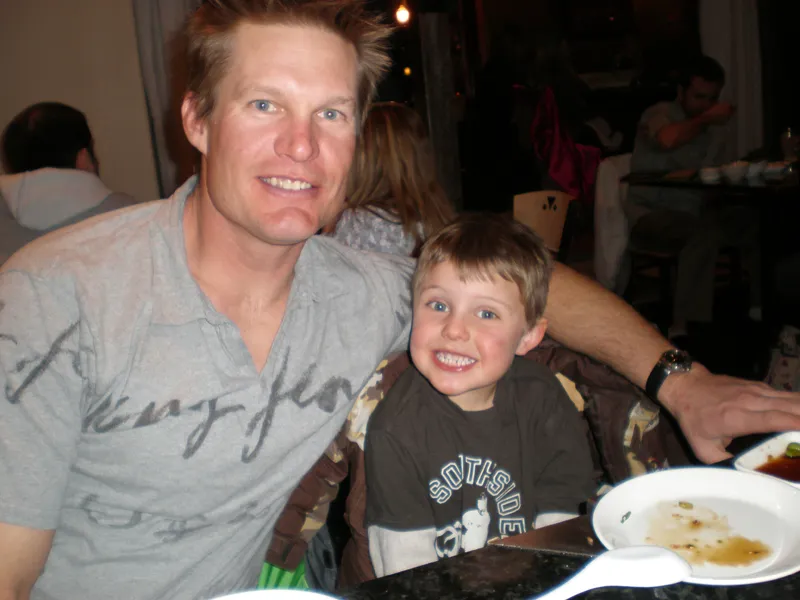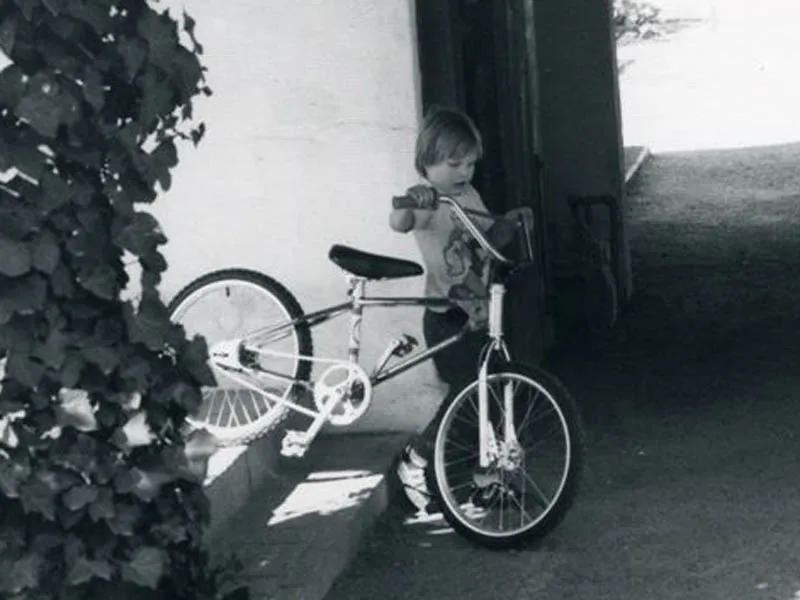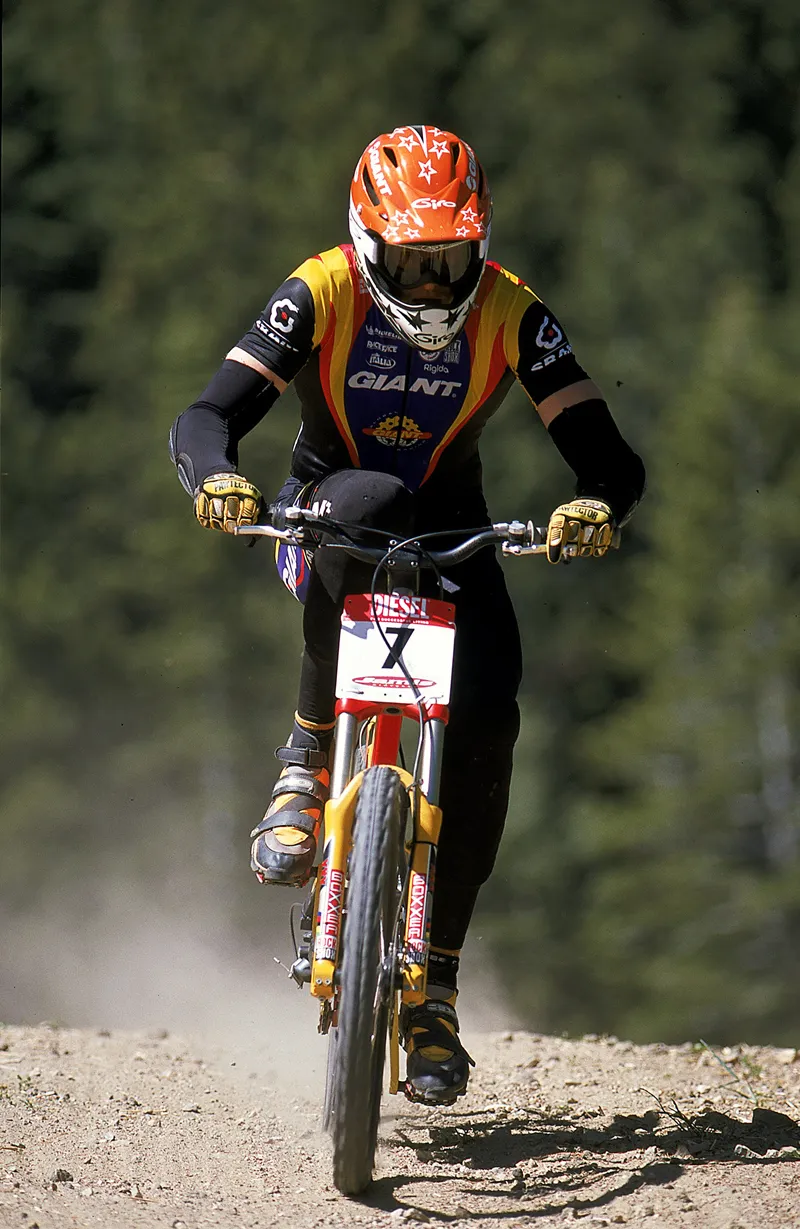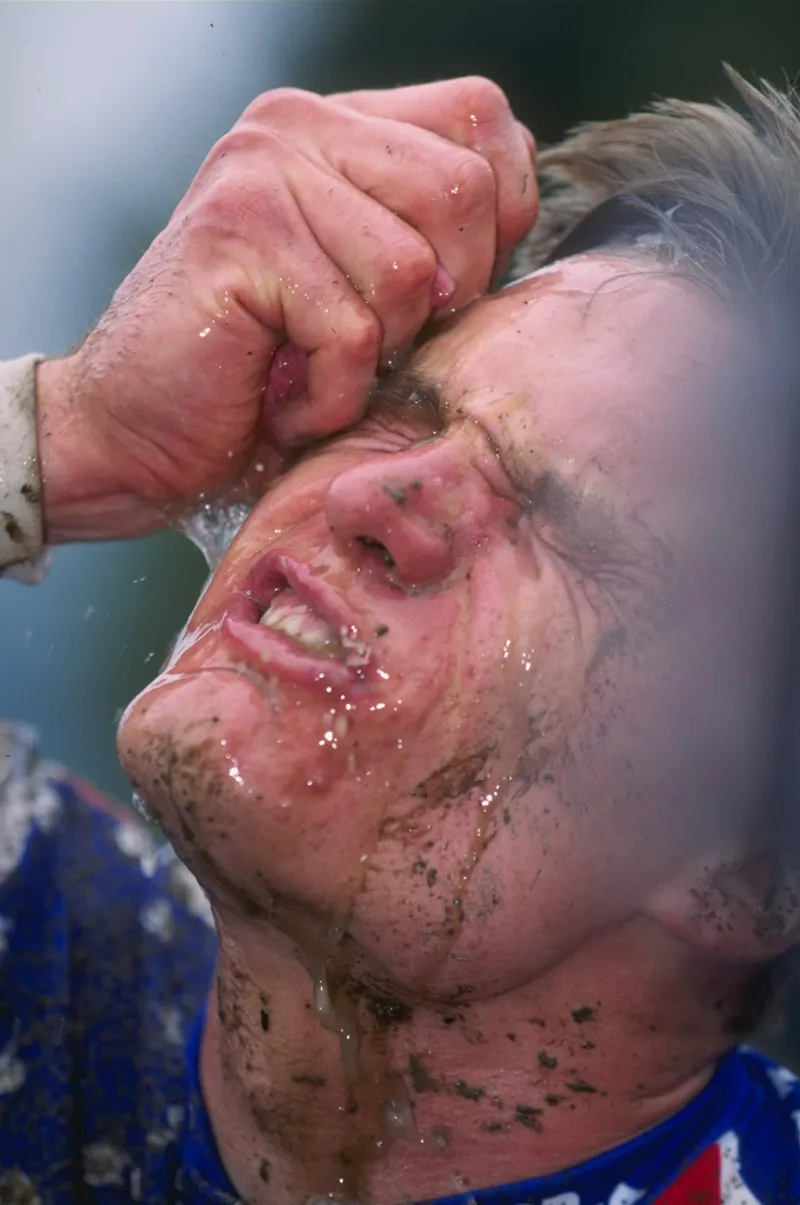Myles Rockwell was one of the fastest and most flowing downhill racers of his day. He earned his place in mountain bike folklore by winning arguably the most talked about downhill race ever, the 1993 Reebok Eliminator. There, his titanic battle with Jason McRoy saw him pip the British rider by only three-tenths of a second to win the dual battle in front of a huge TV audience.
That same year he also won bronze in the UCI Downhill World Championships, an event which he eventually won in 2000 as the first person to stop Nico Vouilloz's remarkable winning streak. But, by 2002 he had taken the decision to retire from competition, aged just 30. Since then, he's more or less fallen off the radar, only surfacing once to take part in and win the 2006 Red Bull Downhill road race.
The breaking news is that he’s decided to come back out of retirement. He's training hard to compete in a series of all-mountain and super enduro events, as well as offering his services as a coach. Marcus Farley talked to him about his recent return, his past glories and how he hopes to impart his will to win to the next generation of racers.
Racing again and coaching
Myles says his will to race has returned due, in part, to getting divorced. This has afforded him the time to sit and think about what he needs to do next in life to help support his five-year-old son. What's more, his son has started taking interest in his dad's famous past and Myles wants to show him that he’s still got it.
In fact, his son has contributed to helping him get back up to racing fitness, as he explains: "I drop my son off at the bottom of the ski slope by the chairlift for his regular skiing lessons. With time to kill, I started to ride out on my own on the mountain roads. It's not only got me super-fit, but the time alone, up on remote mountain passes, has helped me get over the emotional road blocks that I needed to unblock in order to race again.”
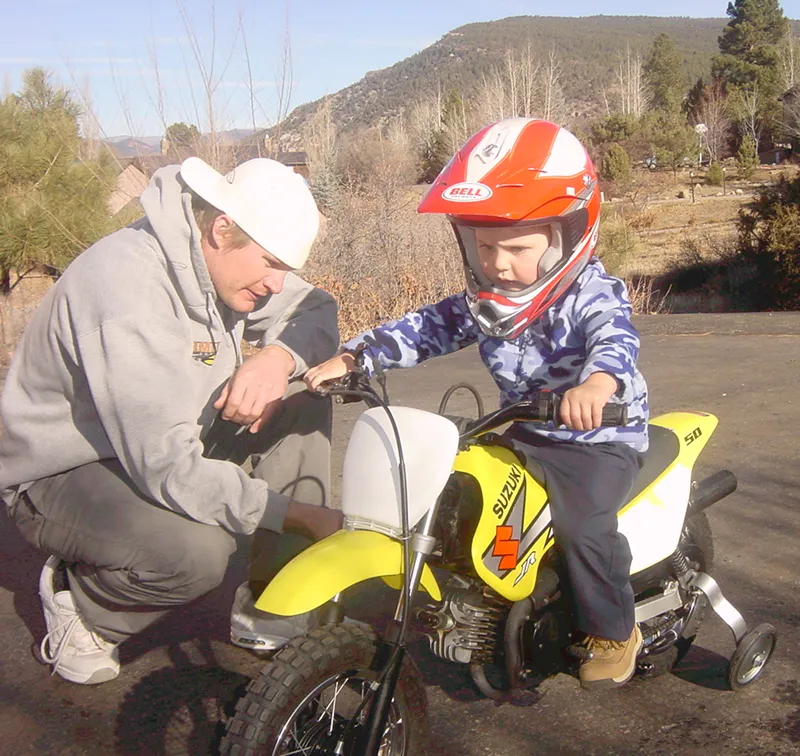
One of Myles's reasons for returning to racing is that he wants to show his son he’s still got it
Myles has restarted his website, www.mylesrockwell.net, and plans to race in some all-mountain and super-enduro events this year, including the Mega Avalanche and the Downieville Classic. He has yet to try to secure a sponsored ride, but is optimistic that he'll manage to attract interest through his sheer will to win.
He's also found a new lease of life as a coach. A skilled motocross (MX) rider as well as mountain biker, he's teaching two local up-and-coming MX kids, as well as planning a series of mountain bike training days.
Myles says that although he intends to help his pupils to get physically and technically better, he believes it's the mental will to win that is necessary to get on the podium. "It's the will and hunger to succeed," he says. "Without that, the skills and ability make you only as good as the next guy." As an example, he mentions Steve Peat, who he respects greatly as a racer, “because he’s still out there to win, in every race he enters".
The origins of his style
Myles was one of the most exciting racers to watch in the history of downhill. He has a distinctive style, sliding the back end of his bike around and through corners in a continuous flowing movement, leg outstretched where necessary for stability. It seems effortless, intuitive and relaxed, yet blisteringly fast.
Myles attributes this style to honing his skills where he grew up, in Marin County, California. Born in 1972, by 1984 the 12-year-old Myles was out on the trails learning his craft on his BMX.
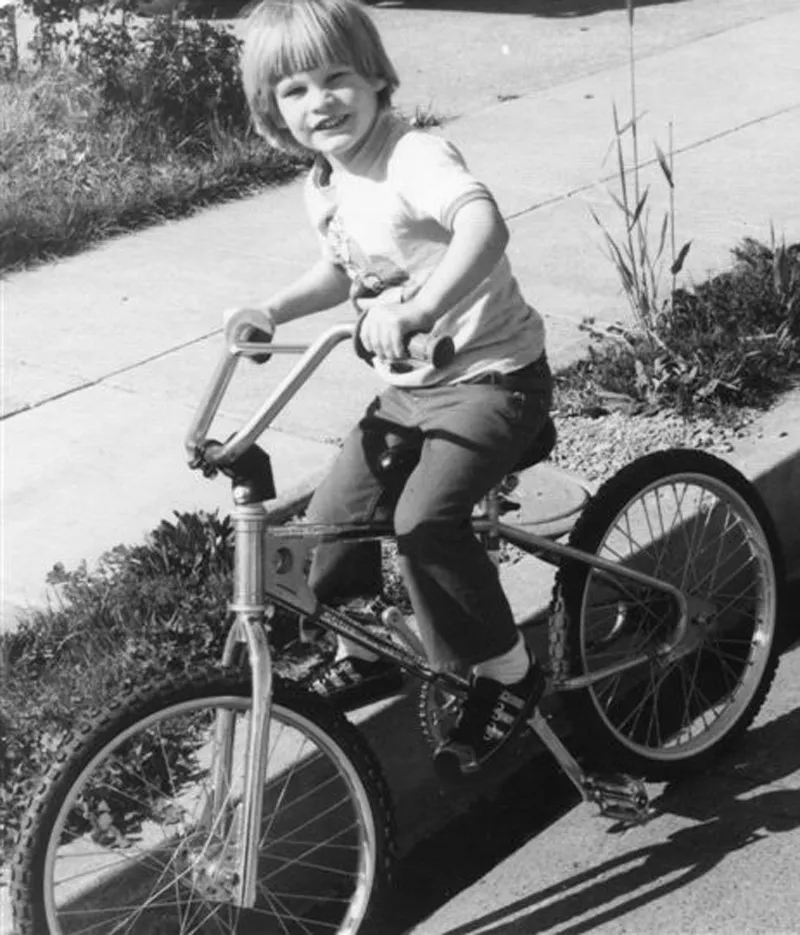
Myles developed his bike handling skills riding BMX
He says: "This sliding style was the quickest way to descend the local loose gravel fireroads and dirt tracks. I'd learnt it from watching and following in the wheeltracks of the original Klunkerz/Repack riders, who slid their way sideways down the mountains."
By 1990, aged 18, he saw some downhill videos and realised he was "capable of smoking the best of them, even the reigning king of the downhill scene, Greg Herbold".
The will to win
But it wasn’t just Myles's style that gave him this belief, it was his will to win. He describes this as like "watching from above, bearing witness to the achievement", and adds: "I wanted to be impressed by myself, not just win the race."
Fortunately for Myles, someone else also saw his potential – mountain bike legend and (at that time) Yeti Cycles owner John Parker hired him as a team rider, and the rest, as they say, is history.
True to his belief, Myles won the infamous Reebok Eliminator in 1993 as well as coming third in the UCI World Championships. The Reebok Eliminator is a race that is still talked about today, and Myles is modest in his description of the win. "I had the utmost respect and reverence for Jason McRoy and his dad, Jim. Jason was a truly phenomenal racer with an equal will to win, and what he and his dad achieved, racing against us big teams, was just awesome.”
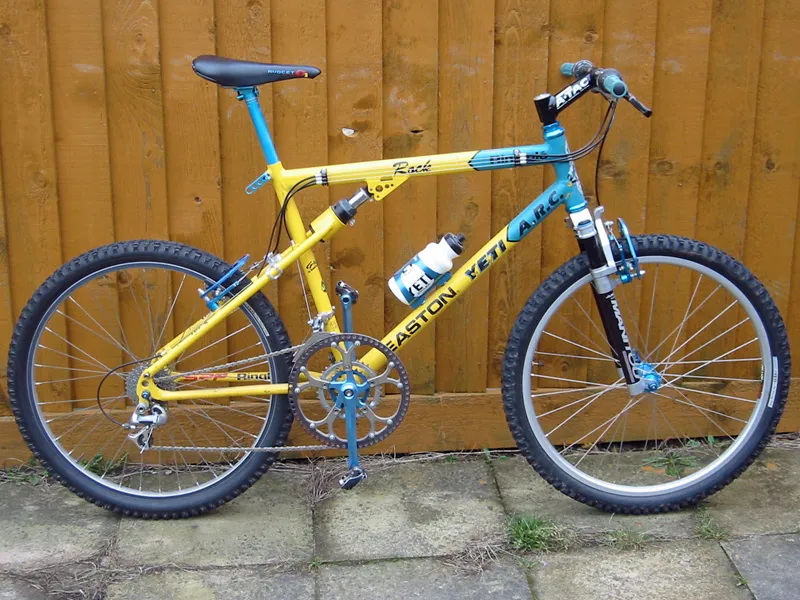
Myles's Yeti ARC still looks good today (Andrew Palmer, Yetifan collection)
Myles adds that: “It was a close run race. Jason was much better than me on the run. His style suited the course more than my sliding style and it was literally almost at the last corner that I managed to get past him. It stands as my greatest racing achievement."
By 2000, aboard a Giant downhill sled, he finally realised his dream and became world champion at Sierra Nevada in Spain. “Winning the World's was the best day as a competitor ever," he says. "I always knew I was capable of it, but, until that day, I hadn’t realised how to get it out of me.” Being close to the end of his career was, he feels, a contributory factor, as it allowed him “the freedom to enjoy it and to do it my way – the fun way, careless and badass, with no stress!”
So, just what does it take to become world champion? Myles describes it thus: “Let the auto pilot click on and let the red light flash, that is the only way to describe it. Grit your teeth and pin it , yah!” This determination also saw him win the 2000 X Games snow downhill race.
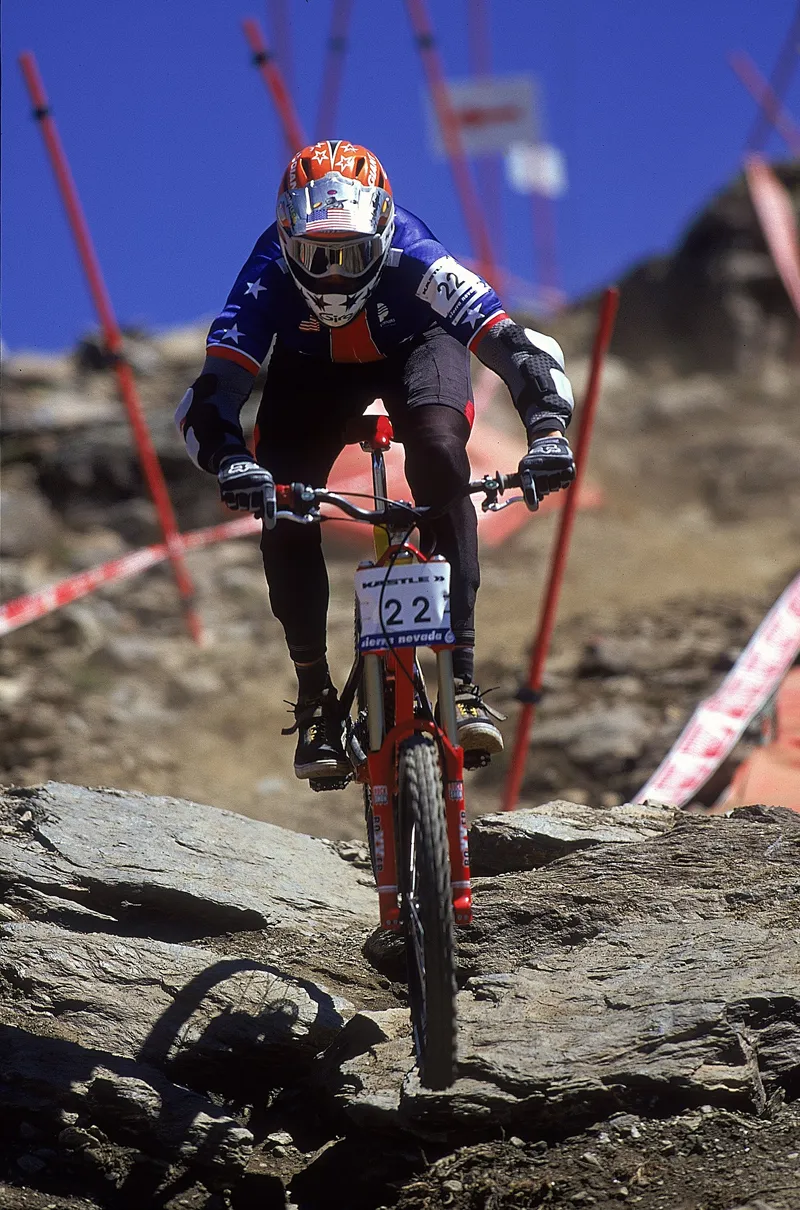
Myles en route to World Championship gold in Spain
The decision to retire
In 2002, at only 30 years old, Myles decided to stop racing. Unlike many competitors, Myles didn't find it a hard decision. He explains: "I was spent mentally and physically. The invincibility of my youth had been slipping for a couple of years, and I was finding it harder and harder to carry on through a long list of injuries." These included two broken wrists, two broken legs (from a motocross crash), two broken kneecaps and a broken shoulder.
"The first injury was the worst, psychologically speaking,” he says. "On race day I could no longer disengage my mind and as I had a mental sore spot, not just a physical one, I couldn't help but question my mortality. As the injuries stacked up, I began thinking that I wanted to end it my way, not be forced into retiring through injury or worse.”
In addition, he says that "as my contemporaries were being replaced by the new, younger breed, I grew bored of the long travel and time away from home without my friends on the circuit". In short, he felt "that the passion for racing had gone".
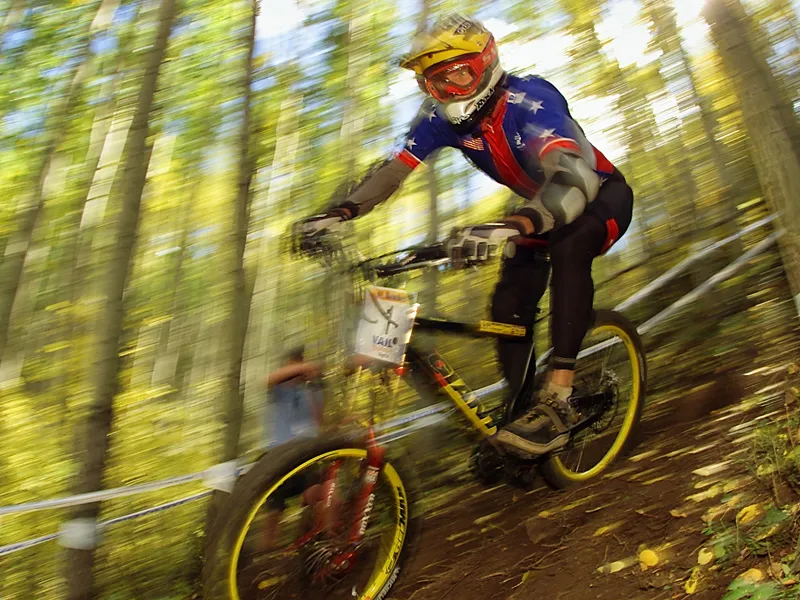
Myles on his way to seventh place at the 2001 World Championships in Vail, Colorado
The lowest point
Having retired from racing, Myles felt at a loss as to what to do next. Bike racing had been his job since he was 18. He'd made a good income from it, but his commitment to racing had been total and he had no backup plan. Unlike many of his peers, he had no interest in working in the bike industry.
But he isn't resentful. In fact, he enjoyed spending a year lazing around. But then his wife became pregnant and he had a young son and wife to support. After a spell in motorcycle maintenance, he started working as a carpenter, which he continues to this day.
Growing up in San Francisco's Bay Area, Myles, like many of the children of the hippie generation, liked smoking marijuana. In 2004, as a money saving exercise, he "decided to have a go at cultivating a private stash in a spare bedroom at home". Unfortunately, the police didn't see it as a hobby and he spent 30 nights in jail and had to attend a drug rehabilitation programme.
He describes it as his "lowest point", and says: "I was working 60-hour weeks doing hard graft as a carpenter, struggling to raise my child, and I just wanted to save some money. But the jail time, especially being treated like a criminal, made me re-assess my life.”
The Red Bull Road Race
In 2006, Myles came out of retirement to race in the Red Bull Downhill road race. The organisers wanted the fastest road and mountain bike riders in the world to go against the clock, and Myles found himself taking a phone call from Giant's Steve Beohmke, who offered him a plane ticket from Colorado to compete. It was a temptation too hard to resist, as not only was the prize money good, but the race was to be held on the twisty Californian mountain roads where Myles grew up.
Myles says: "I went there with the sole intention of winning. I wanted to prove that I could still smoke the best of them, rather than be in the news for being an ex-pot smoker!” Although his mindset was temporarily back in the zone, he is the first to admit his training for the race was pretty laidback, saying: "I did a few spin classes in the gym on top of my usual bike and motocross riding.”
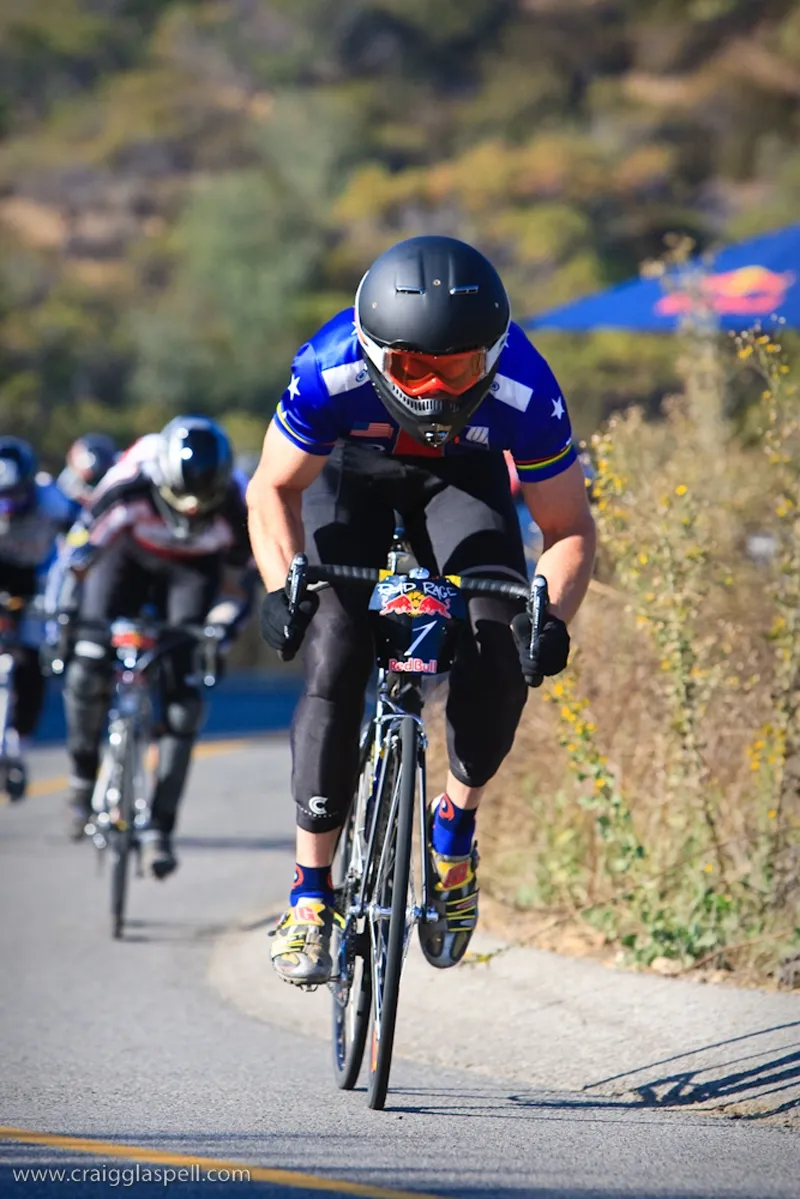
Myles beat the world's best in the Red Bull Downhill
In a bizarre twist of fate, he competed as an underdog privateer on his own bike, as Jason McRoy had done all those years ago. As he stood in the start gate, his "sheer will to win came back" to him, as if he had never retired.
He went on to beat the world's best in the individual time trial, including road rider David McCook and mountain bike supremos Brian Lopes and Eric Carter, then went on to beat Carter, John Wike and Todd Tanner in the 4-UP Elimination. After wrapping up the wins, he happily slipped back into obscurity. That is, until now.
2009 diary
Myles expects to be racing at the following events, where he'll also be running coaching sessions:
- The Sea Otter Classic – April 16th-19th.
- Angel Fire – May 23rd-25th.
- The Ashland, Oregon, Super G – June 13th-14th.
- The Downieville Classic – July 11th-12th
- Crankworx – August 6th -16th.
He'll also be running the Myles Rockwell Mountain Bike Training Camp in his home town of Durango on 4-8 June.
For sponsorship and coaching, email myles@mylesrockwell.com.
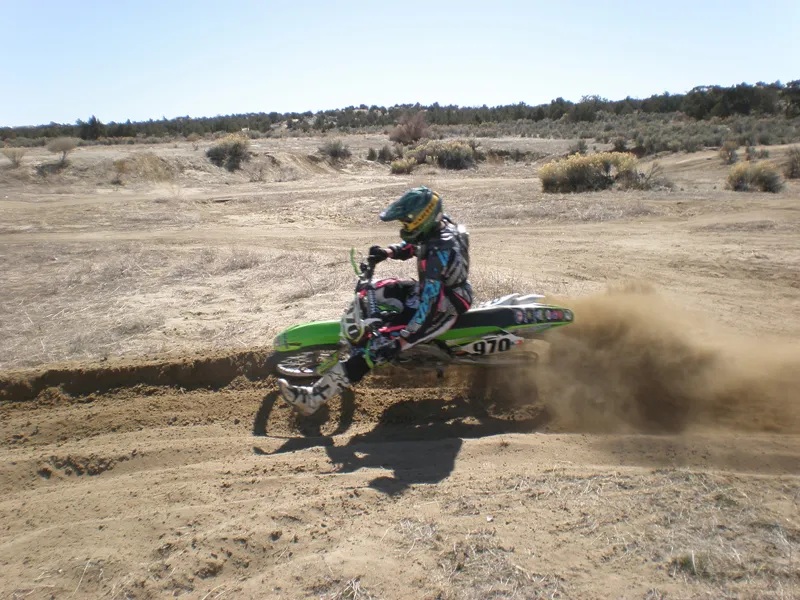
Myles cuts a dash on a motocross bike as well as on a downhill rig
